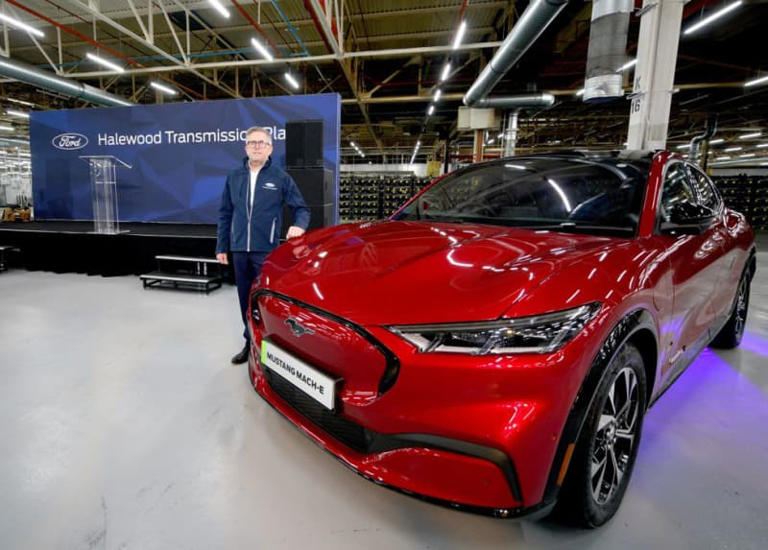Ford’s Electric Vehicle Strategy: Shaping the Future of Mobility
Explore how Ford is reimagining its electric vehicle strategy to meet the needs of drivers and navigate the changing landscape of automotive technology.

In the world of automotive innovation, Ford is making significant strides with its electric vehicle strategy. Recently, the Detroit-based manufacturer announced a rethinking of its approach to electric vehicles (EVs) in response to driver concerns and market dynamics. Let’s delve into how Ford is reshaping its electric future.
Ford’s CEO, Jim Farley, emphasized the importance of aligning their EV strategy with drivers’ needs and ensuring robust infrastructure to support electric mobility. The company recognizes the evolving landscape of automotive technology and aims to adapt accordingly.
In a bid to optimize investments, Ford has decided to delay or cut $12 billion from its spending targets for all-electric vehicles. This strategic move reflects a thoughtful reevaluation of investment priorities in light of changing market conditions.
A key consideration for Ford is the evolving demand and pricing dynamics in the EV market. Jim Farley highlighted a significant shift in the past six months, with EV manufacturers reducing prices by 20% across major geographies. This trend underscores the growing affordability and accessibility of electric vehicles.
To match demand effectively, Ford is rationalizing battery capacity and reassessing vertical integration strategies. The goal is to ensure that their EV offerings align with consumer preferences and market trends while capitalizing on emerging technologies and capacities.
In terms of product focus, Ford intends to concentrate on larger EVs, particularly trucks and vans, where it holds a competitive advantage. Additionally, the company is developing a smaller, low-cost EV platform that can be adapted across various vehicle models. This strategic approach underscores Ford’s commitment to innovation and versatility in electric mobility solutions.
Despite the strategic realignment, Ford faces challenges in certain segments of the EV market. The company recently announced a production cut for electric vehicles, including the F-150 Lightning pickup truck, due to lower-than-expected demand. This decision reflects the need for manufacturing flexibility to adapt to shifting market dynamics.
Nevertheless, Ford’s F-Series truck, including the F-150 Lightning, continues to be a top-selling vehicle in the United States. The F-Series achieved remarkable sales figures in 2023, reaffirming Ford’s strong position in the automotive market.
Looking ahead, Ford is steadfast in its commitment to environmental sustainability. The company aims to sell only electric or zero-emission vehicles in Europe by 2030, signaling a proactive stance toward reducing emissions and combating climate change.
While current challenges exist, Ford remains optimistic about the future of electric mobility. The company anticipates ramping up EV production once drivers gain confidence in electric vehicles and infrastructure continues to evolve.
In conclusion, Ford’s electric vehicle strategy reflects a dynamic response to evolving market trends and consumer preferences. By prioritizing innovation, affordability, and sustainability, Ford is poised to shape the future of mobility and drive positive change in the automotive industry.
In essence, Ford’s electric vehicle strategy represents a bold step forward in the journey toward a more sustainable and efficient transportation ecosystem. With continued innovation and adaptation, Ford is poised to lead the charge toward a greener and more electrified future.